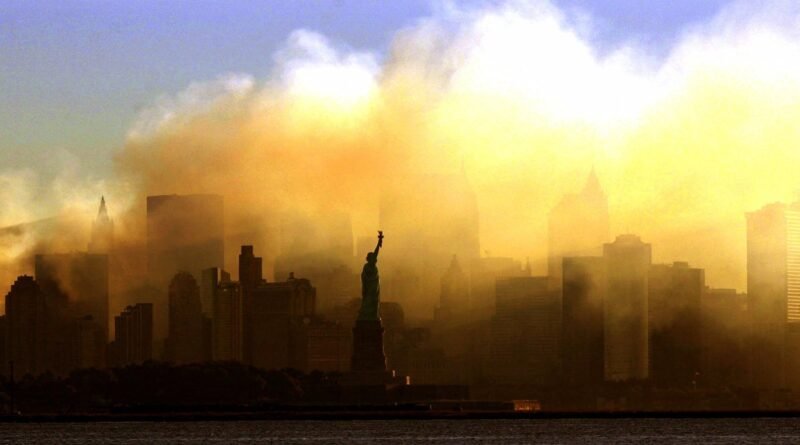Hidden Gems: Loose Change 9/11: An American Coup (2009)
Loose Change 9/11: An American Coup, 2005-2017 (Dylan Avery/Daniel Sunjata) Microcinema International
I was talking to somebody recently, and as such, because it leads to the anniversary, I was told that conspiracy theories desecrate the memory of those who perished on 9/11. I disagreed, in part, because conspiracy theories keep the memories alive. Otherwise, we would forget, wouldn’t we? Eventually, we become numb to the devastation. The screams are reduced to diminished tones. The rubble is washed away by rain.
In 2005, we were still licking our wounds, and we had a blackout to consider. It was a good thing I had a battery-powered radio on that day in August. The first thing we were told was: “This is not a terrorist attack.” There was paranoia to spare in the early 2000s. We caught the fever in the ’90s; sort of nostalgic call-back to the 1970s. Kennedys had been assassinated. Martin Luther King, Jr. The pop culture exploded with some of the greatest movies in history.
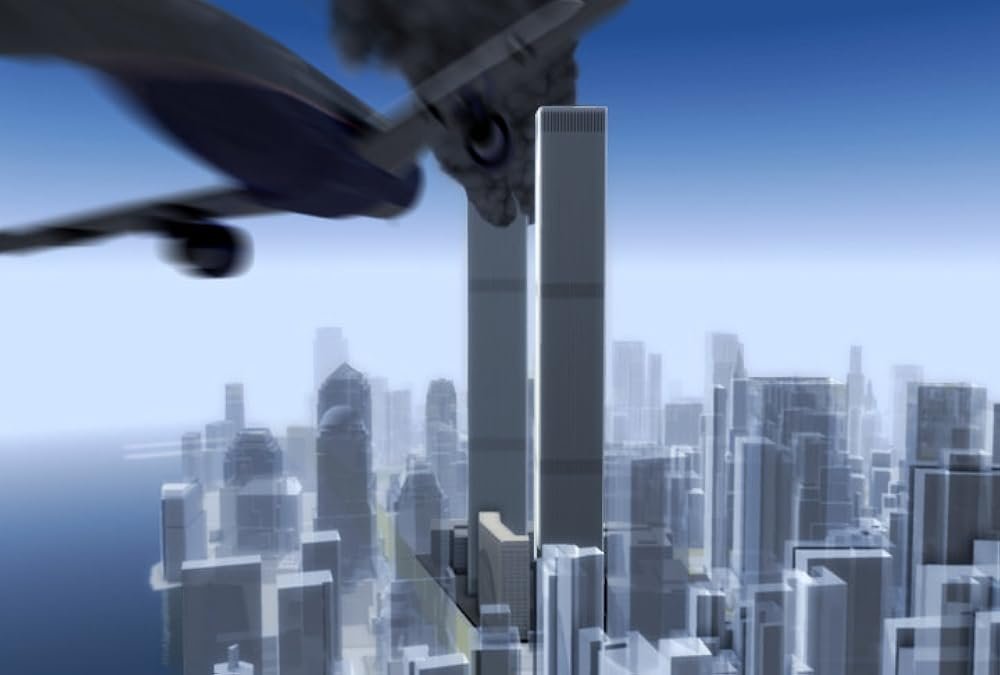
Reagan’s ’80s effectively put a moratorium on “doom and gloom,” and instead we got “feel good” stories, optimism, alleged financial prosperity, and rampant materialism. The Berlin wall came down on November 9, 1989. To a lot of us, it was like a brand new day. We didn’t realize our government must thrive, and the only way it can thrive is to become bigger and bigger, to justify its existence in “protecting” us, but did it protect us?
As I said, we were licking our wounds in 2005. This was when the first rough cut of Dylan Avery’s Loose Change documentary started circulating on the Internet. Loose Change was a monster in a closet, a very deep and treacherous rabbit hole. I wrote a review of the movie for Film Threat, but this was around the time Chris Gore gave up and sold the web site to Mark Bell, so the restructuring made it nearly impossible to get published.
I don’t know if I still have the review (we went through so many computers at the time, it might be on an old hard drive in storage), but I remember some of the points I was trying to make. I remember thinking 9/11 would have made the perfect Irwin Allen disaster movie. It starts with a plane hitting one of the towers at the World Trade Center, and ends with a group of courageous passengers fighting back and steering a plane into a field in Shanksville, Pennsylvania.
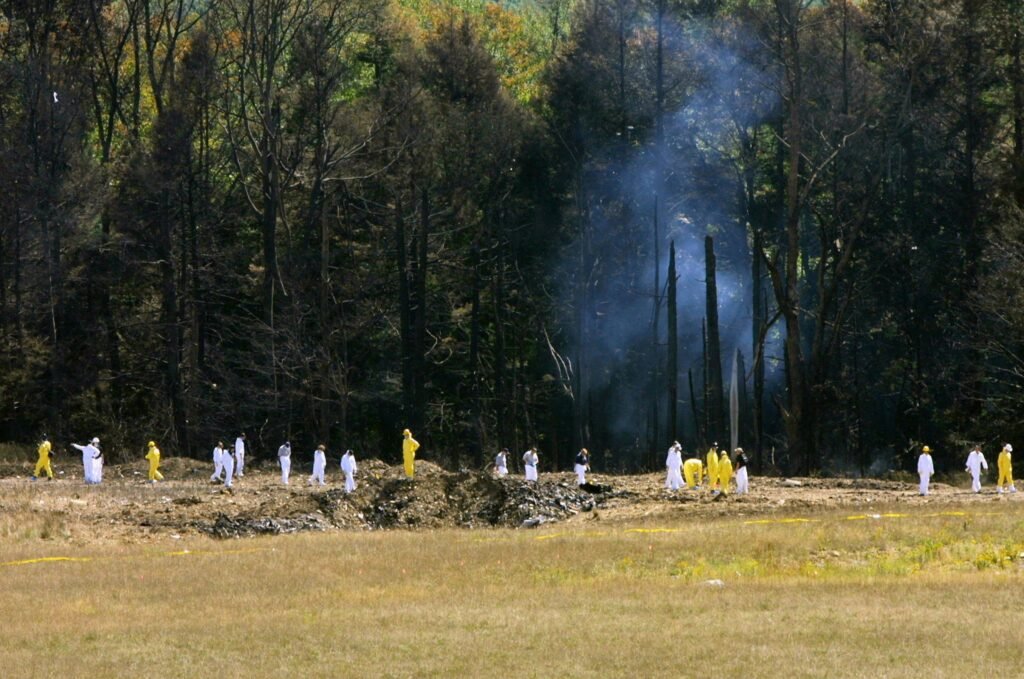
Think of it. A three-plus hour action/adventure movie about a hijacking. Maybe throw in some romance? DiCaprio? Winslet? Movies have been produced in the intervening years, but really only United 93 does any justice to part of that story. That particular flight I found suspicious because each of the (supposedly impossible) cell phone calls came from people who clearly identified themselves as being on the flight and providing fascinating narratives as the events were unfolding.
One of the passengers even called his mom and identified himself by his full name! Remember Building 7? Did that make sense? You have to remember that 9/11 conspiracy theories back then were like a particularly dangerous and addictive narcotic. I went down a rabbit hole so deep it took me years to recover and climb out. Oliver Stone’s World Trade Center disappointed me.
It had nothing to do with the story in the film (about two police officers trapped in the rubble who survive) rather it was that I had hoped for a conspiracy movie like J.F.K. Instead, this movie was like biting into a week-old hamburger and tasting nothing but a stale bun and a black onion.
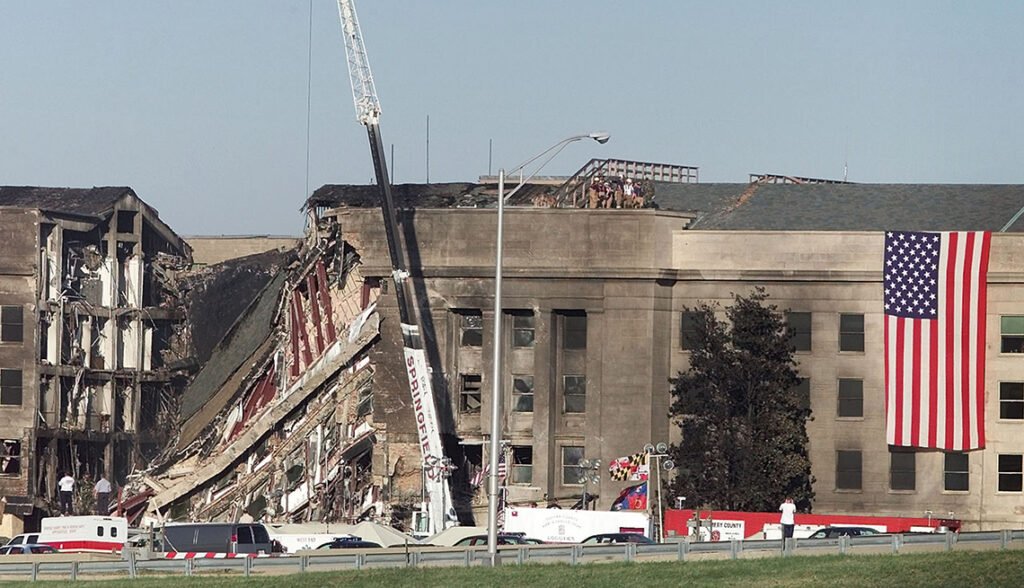
Michael Moore’s Fahrenheit 9/11 (produced for the central purpose of preventing the re-election of George W. Bush, Jr.) promised a myriad of theories, but it only gave us a provincial connection between the Bush family and Osama Bin Laden (in the form of heavily-censored government documents), and it wasn’t enough to get Bush, Jr. out of office. Moore seems to assume 9/11 would have never happened if Al Gore had been elected.
After the 2004 election, I began to notice trends in news gathering and production. We became accustomed to hearing phrases like “news cycles,” “crisis actors,” and “false flags.” It was also interesting to note that the collapse of the towers and the blackout of 2005 were the last two events to truly bring people together. We were out in the streets talking to strangers and embracing them.
We were Americans. There were no differences between us. We didn’t hate each other. That’s not to say there weren’t idiots causing all kinds of havoc on people we assumed to be our enemies in that tense time. Sometimes freedom comes at the cost of cultural illiteracy.
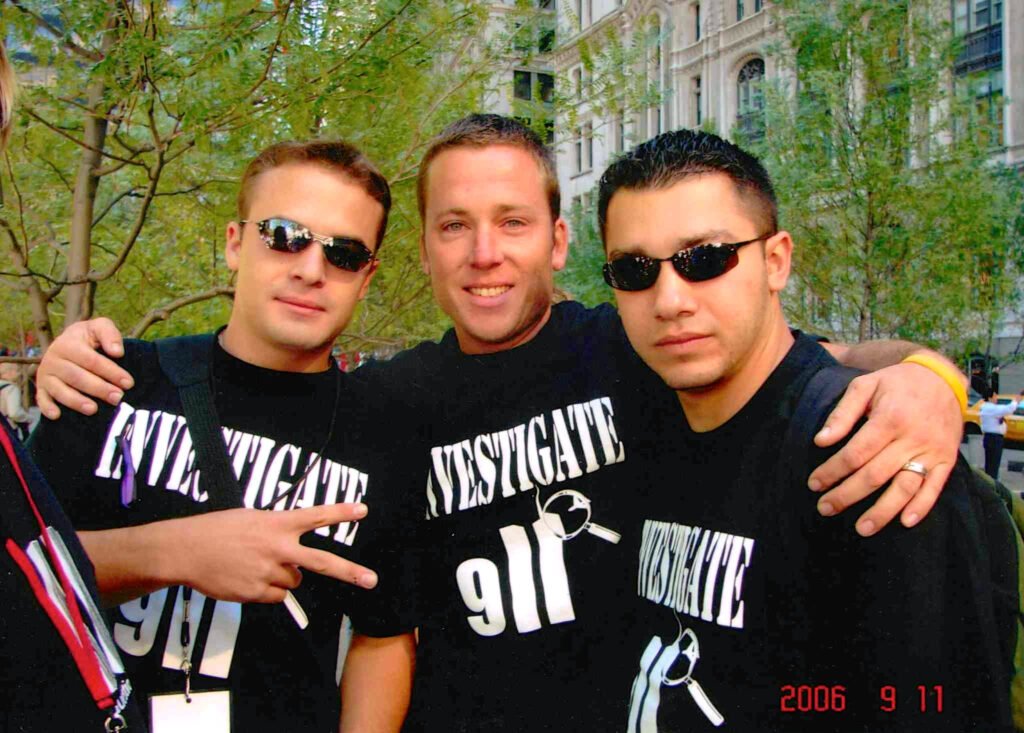
Loose Change (in its many forms), while enthralling and hypnotic, is a dangerous, anarchic, and irresponsible documentary. Dangerous along the lines of Michael Moore’s inaccurate and misguided Sicko documentary about the American health care system, and irresponsible in the sense that Avery keeps changing his focus and reasons for the events of 9/11 with every version of the movie he releases. Anarchic because he offers no solutions.
One element does remain with every revision: that of “controlled demolition” at the World Trade Center. He also remains skeptical about Flight 93, but the tone in subsequent versions of the movie is conciliatory rather than dubious or angry. That may be due to removing his own narration and replacing it with that of the more measured actor Daniel Sunjata.
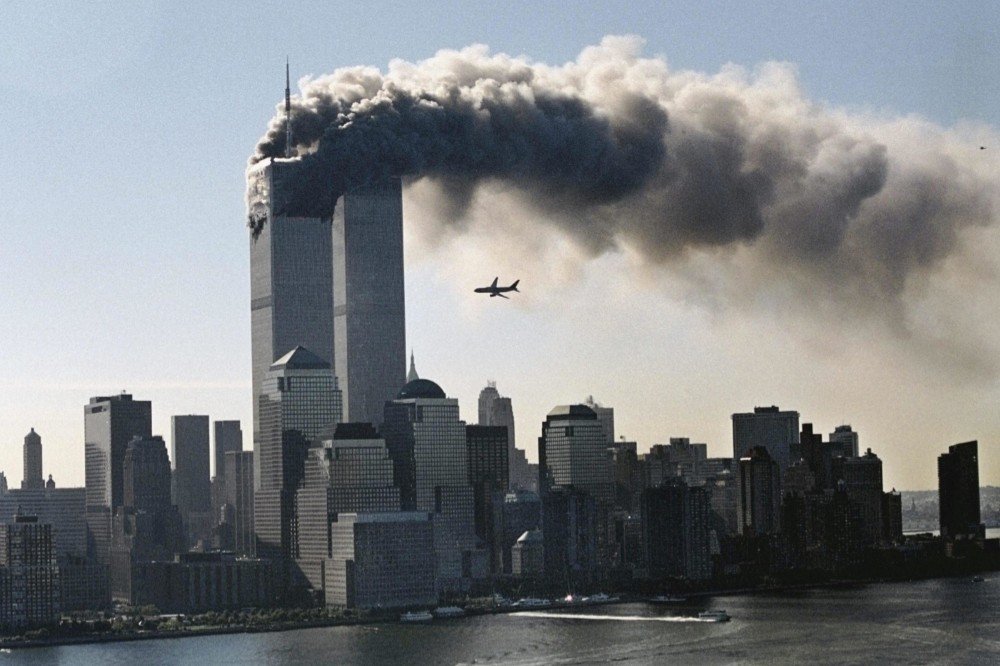
Early versions of Loose Change indict government operatives and occasional departmental incompetence while accusing officials of malevolence, greed, and lust for power. While I’ve always believed politicians are evil (and more dangerously, indifference) incarnate, I came to realize they were an inevitability in the spectrum of humanity. Now, I suspect the filmmakers want to believe in evil as an ever-omniscient force.
To “credit” evil with so much thought and resource is to give it rewards it couldn’t possibly earn. Yes, they have a vested interest in keeping us scared and at each other’s throats because it takes the targets off their backs, but toppling two towers, a section of the Pentagon, and (however questionable) a field in Pennsylvania for greater governmental control over the populace is a bridge too far for me. Moore goes on at nauseating length about this in his movie as well, and I have to admit I bought this line of thinking when I was a kid.
As someone much wiser than me once stated, “Hell works better when it’s a lot more subtle.” Loose Change tries to make a bizarre point that somehow our freedoms weren’t personally eroded before 9/11. It is the prerogative of every government vessel or agent to erode our personal freedom, and it has been done since July 4th of 1776, and we didn’t need falling bodies and anthrax to make us meek. The Naudet Brothers’ documentary about the firefighters who rushed into the towers that day still stands as the best document of the subject of 9/11.
At last count, there have been six versions of Loose Change, each re-edited to change the focus and rationale of the attacks. The second version of the movie places the blame on gold. Yes, that’s right. Gold. Avery claimed there was nearly $200 billion in gold under the south tower. Okay. Except this is almost the plot of Die Hard With a Vengeance. Remember Jeremy Irons as Simon Gruber. “God, I love this country!”
The “gold” reason is removed for subsequent releases. How do you frame your bad guy in a movie about bad guys? Is it about power? Is it about greed? Is it about both? I don’t know. I will tell you we’ve doubled down on danger scenarios over the last 24 years. The public (at large) has been horrified on a consistent basis due to the news cycle.
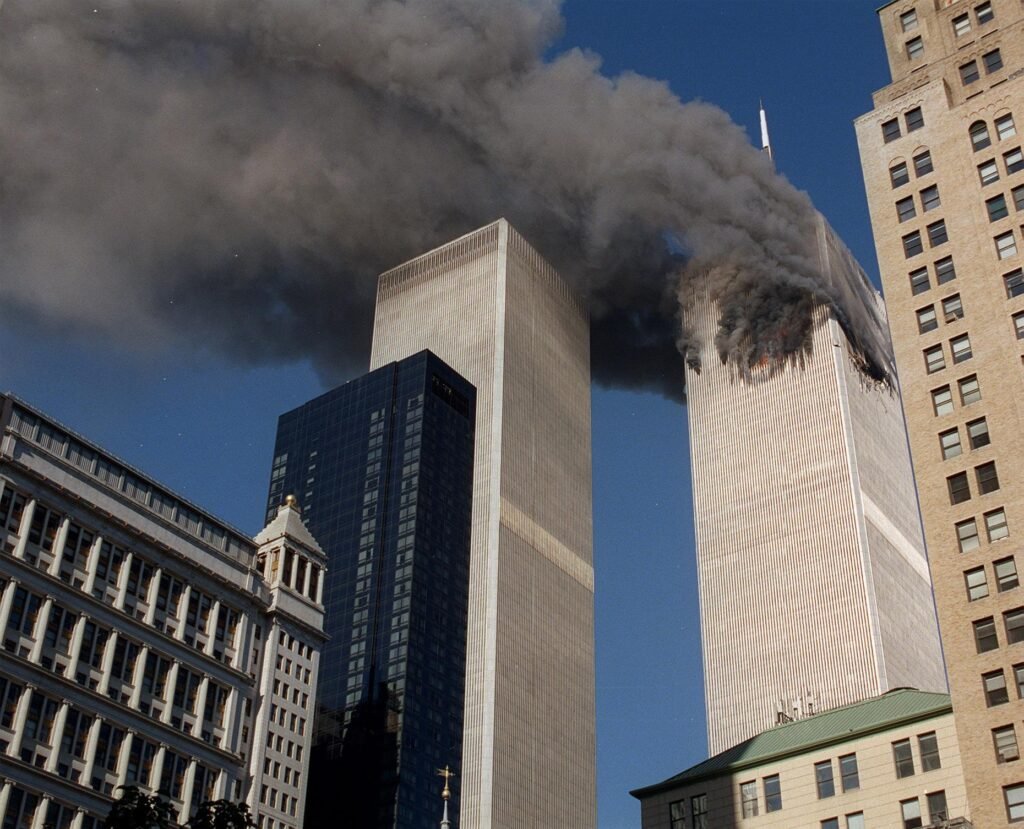
School shootings. Climate Change. The specter of racism. Homophobia. Transphobia. Cancel culture. Riots. Historic injustice. Covid. Mosquito flu. The Media and the government know how to play us like a harp from hell! Loose Change is a brilliant movie because it achieves exactly what it sets out to damn. It scares the hell out of us, and it works. 9/11 destroyed our very fragile nation. 9/11 is still destroying our very fragile nation.
All it took was nineteen hijackers and a couple of box cutters. You know what I remember most about 9/11? The smell of burning bodies. The smell permeated New York City for three months. People on the news told us to turn on our air conditioners to filter out the debris and the dust and the bodies. I wonder how much money Con Edison made from 9/11.

